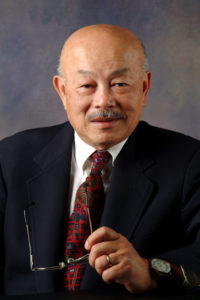Notable Alumnus: James M. Phang ’63
About Dr. Phang, in his own words:

Having attended Seventh-day Adventist schools from the second grade through medical school at the Loma Linda University (LLU) School of Medicine, the transition to Stanford Medical Center for internship was challenging. However, the devotion to patient care and academic excellence of the professors and senior house staff paved the way for friendships to form.
Several residents, alumni of the National Institutes of Health (NIH) in Bethesda, Maryland, spoke highly of their research training there. They encouraged me to apply.
I was interested in academic medicine and felt such an experience would be valuable. With the encouragement of Loma Linda University professors Drs. Varner J. Johns ’45 and John E. Peterson ’39 I applied, was invited for an interview in Bethesda and matched with the Metabolism Branch of the National Cancer Institute (NCI). This opportunity changed the trajectory of my career.
I intended to return to Stanford or LLU after the research training at NIH but the opportunities in Bethesda were difficult to match. My clinical research was complemented by training in the laboratory of Dr. Robert Goldberger on the molecular biology of the histidine operon in Salmonella typhimurium. Soon after, I was appointed senior investigator in the metabolism branch of the NCI. My ties with the metabolism branch and the NIH community were strengthened by marriage in 1968 to Ruth Van Dyke from Racine, Wisconsin, who was an editorial assistant with NIMH and thus, my lifetime career at NIH was set.
In the early 1970s, I began working on the enzymology and regulation of proline metabolism. The attraction was that proline is the sole proteinogenic secondary “imino” acid and provides much of the structural constraints for protein tertiary structure and protein-protein interaction. Collagen and the infrastructure of the cellular microenvironment are dependent on proline and its hydroxylated derivative, hydroxyproline. Our discoveries were reviewed in Current Topics of Cellular Regulation in 1985. Features included the “proline cycle” and the transfer of redox potential by proline.
An important breakthrough was the discovery by others that Proline Dehydrogenase, the first enzyme for proline degradation, was an early and robust responder to the tumor suppressor, P53. Our lab soon showed that a ubiquitous oncogene, c-MYC, markedly induced the isozymes of proline synthesis. Thus, the cornerstone of proline metabolism in tumor growth and progression had been established.
These discoveries were eclipsed by the flurry of research activity on glucose and glutamine, but the proline effect, confirmed and extended by many labs, soon stimulated research so that between 2015-2020, over 1,000 papers were published globally on “proline metabolism in cancer.”
A central idea from these studies was that proline metabolism formed the signaling link for metabolic epigenetics, i.e., transformation and reprogramming, and was an important target for cancer therapy.
I was invited to be guest editor of a special issue of the journal Amino Acids on this subject in early 2022. Although now a scientist emeritus, I have an office at NCI-Frederick and remain active as writer and reviewer.
As the Phang family progressed, Ruth served as a school librarian and authored several children’s books. We have three daughters: Sara Elise Phang is a scholar of ancient history with a PhD from Columbia University. She works as a librarian and has authored four academic books. Laura Justine Phang has a MD from UCSF. She and her classmate husband trained in OB-GYN and surgery, respectively, at the Brigham and Women’s and Massachusetts General and are both on the staff of the University of Michigan Medical School. Our youngest daughter, Elizabeth Ann Phang, earned an MFA degree from the Michener School of the University of Texas and has written many TV shows, one of which, “Yellowjackets,” has been nominated for an Emmy this year. We have four grandchildren: Samuel Phang Regenbogen, Jonah Phang Regenbogen, Nicholas Phang Waite and Penelope Rose Phang Waite. Sadly, Ruth, my wife of 46 years, passed away in 2014 of cancer.

